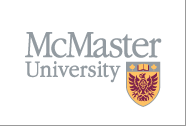|
| Tutor: |
Wolfram Schulte |
Affiliation: |
Microsoft Research, USA |
|
Date: |
August 26, 2006 |
Time: |
9:00-12:30, 2:00-5:30, 1/2hr break at 10:30 and 3:30 |
Location:
|
ITB 238 |
Format:
| Full-day. 4-45 minute lectures, and some interactive exercises with the Spec# system. Participants are welcomed to
download Spec# and install it on their
laptops. Lab computers will also be loaded with Spec#.
Slides available (
1 2
2 3
3 4
4 5
5
)
|
| |
Topic:
The Spec# programming system is a new attempt at a more cost effective way to develop and maintain high-quality software. Spec# is pronounced "Spec sharp" and can be written (and searched for) as the "specsharp" or "Spec# programming system". The Spec# system consists of:
- The Spec# programming language. Spec# is an extension of the object-oriented language C#. It extends the type system to include non-null types and checked exceptions. It provides method contracts in the form of pre- and postconditions as well as object invariants.
- The Spec# compiler. Integrated into the Microsoft Visual Studio development environment for the .NET platform, the compiler statically enforces non-null types, emits run-time checks for method contracts and invariants, and records the contracts as metadata for consumption by downstream tools.
- The Spec# static program verifier. This component (codenamed Boogie) generates logical verification conditions from a Spec# program. Internally, it uses an automatic theorem prover that analyzes the verification conditions to prove the correctness of the program or find errors in it.
A unique feature of the Spec# programming system is its guarantee of maintaining invariants in object-oriented programs in the presence of callbacks, threads, and inter-object relationships.
The Spec# programming system is being developed as a research project at Microsoft Research in Redmond, primarily by the Programming Languages and Methods group.
|
Objective:
Understand how a verifying compiler is build and what a verifying compiler can do.
|
Prerequisites:
Basic understanding of object-oriented programming, type system and Hoare Calculus or similar.
|
Biography of Tutor:
Since 2006 Wolfram Schulte has been a research area manager for the Foundations of Software Engineering (FSE) group, the Programming Language and Methods (PLM) group, and the Software Design and Improvment (SDI) group at Microsoft Research in Redmond, Washington, USA. The research of these groups tries to improve software development productivity through rigorous software design, design verification, new programming language features in conjunction with program verification, advanced test generation, and new programming language implementations for sequential, parallel and embedded hardware. In principle, Wolfram's research concerns the practical application of formal techniques. He has published a variety of papers in the areas of language design, verification, testing, program derivation and compilation. Before joining Microsoft Research in 1999, Wolfram worked at the University of Ulm (1993-1999), at sd&m, a German software company (1992-1993), and at the Technical University Berlin (1987-1992). http://research.microsoft.com/~schulte/
|

